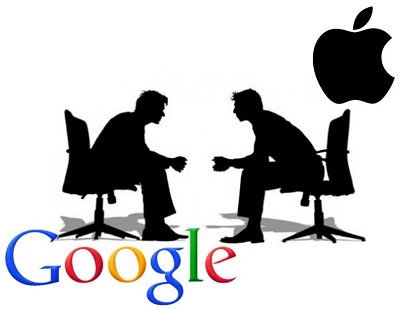Smartphones have become the standard in smaller companies and are generating $65 billion in annual savings.
It has now reached the point that nearly all small businesses are using mobile technology in the form of smartphones, with 94 percent claiming that they are using them, this year, which is still a notable increase over the high level that was recorded last year, at 85 percent.
Millions of small to midsized businesses (SMBs) across the United States are taking advantage of the tech.
These SMBs are using the smartphones to be able to save a considerable amount of time and money. A recent survey which was commissioned jointly by AT&T and by the Small Business & Entrepreneurship Council (SBE Council) estimated that every year this mobile technology is saving SMBs $67.5 billion. This includes not only the use of the mobile devices, themselves, but also tablets and apps.
The survey looked into both the time and the money saved by the use of mobile technology.
Among all of the different types of mobile tech, smartphones alone are saving small to midsized businesses the largest amount of money ($32.3 billion) and even time (at an estimated 1.24 billion hours). Tablets came in second, with a savings of $19.6 billion per year and an estimated 754.2 million hours. Mobile apps are saving $15.6 billion per year and an estimated 599.5 million hours.
According to Karen Kerrigan, the CEO and council president of SBE, “Clearly, we are at a point where entrepreneurs now look first to communications technologies and innovations for solutions to improve productivity, cut costs and better manage and engage with customers.” She added that this is money and time that can all be redirected back into the business and improving market innovation while boosting sales.
The report on the study showed that over half of all small businesses say that they are currently using mobile technology in the form of apps. Among those who are using applications, 91 percent say that they use them for time savings, while two out of every three claim that money is being saved in this way.
These two technology giants have agreed to stop suing each other and to work together for systemic reforms.
Google and Apple have now come to an agreement that will enter them into a ceasefire within their mobile patents war, in which neither of them will sue the other and in which they will both work together in the effort to encourage patent system reforms in the United States.
The current truce is one of the outcomes of a massive trial that started back in 2010 between the two.
In that year, the trial in which Apple had sued Motorola Mobility was started. The latter company is the hardware manufacturer that was purchased by Google in order to divide it up and sell off its parts, maintaining a boatload of technology and mobile patents. As a result of the way that the lawsuit played out, a joint statement from the two companies now reads that “Apple and Google have agreed to dismiss all the current lawsuits that exist directly between the two companies.” It added that “Apple and Google have also agreed to work together in some areas of patent reform. The agreement does not include a cross license.”
It appears that some of the mobile patents lawsuits from Apple will continue, though not directly against Google.
 The wording of the statement that was made by the companies indicates that the lawsuits that are underway from Apple against mobile device manufacturers that are using the Android operating system, from Google, would not cease. This includes the patent suit opened by Apple against Samsung that has brought about two massive headline making trials in San Jose, California, as well as comparable legal battles occurring in other nations.
The wording of the statement that was made by the companies indicates that the lawsuits that are underway from Apple against mobile device manufacturers that are using the Android operating system, from Google, would not cease. This includes the patent suit opened by Apple against Samsung that has brought about two massive headline making trials in San Jose, California, as well as comparable legal battles occurring in other nations.
In both of the high profile trials against Samsung, Apple has come out the winner. However, the second judgment’s damages were notably lower. It was in that second case that newer Samsung mobile devices were included.
The lawsuits against many of the companies using Android were carrying out a vow by Steve Jobs, the late CEO of Apple, in which he said that the company would go “thermonuclear” against Google for having copied the iOS for the iPhone in what he referred to as “grand theft.”. That statement was revealed in the Walter Isaacson biography of Jobs which was published after the Apple co-founder’s death.


 The wording of the statement that was made by the companies indicates that the lawsuits that are underway from Apple against mobile device manufacturers that are using the Android operating system, from Google, would not cease. This includes the patent suit opened by Apple against Samsung that has brought about two massive headline making trials in San Jose, California, as well as comparable legal battles occurring in other nations.
The wording of the statement that was made by the companies indicates that the lawsuits that are underway from Apple against mobile device manufacturers that are using the Android operating system, from Google, would not cease. This includes the patent suit opened by Apple against Samsung that has brought about two massive headline making trials in San Jose, California, as well as comparable legal battles occurring in other nations.